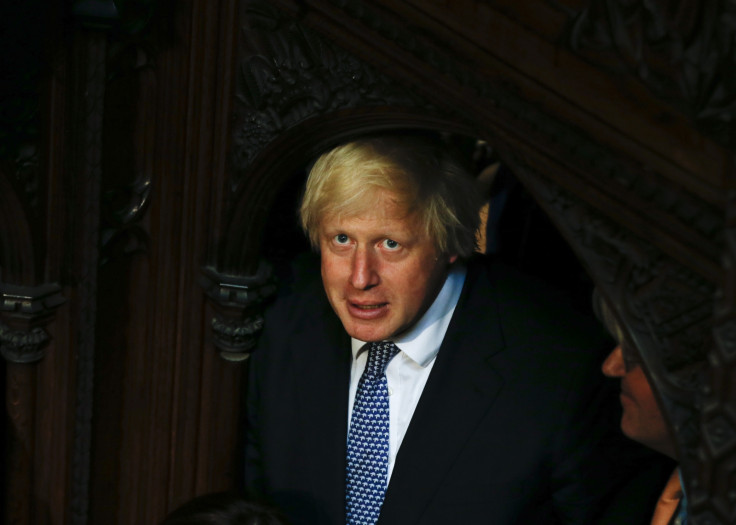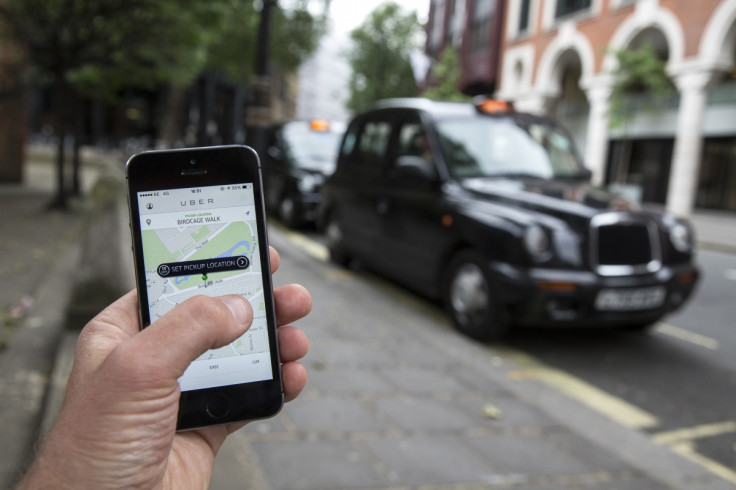Boris Johnson on Uber: City Hall owes London black cabbies

Boris Johnson, mayor of London, said the state has a duty to protect black cabbies in their war against the taxi-hailing app Uber because they "have been told that they, and they alone, will be able to ply for hire on the streets".
Uber drivers, of which there are more than 15,000 in London, have private hire licences and are classed as minicabs. The city's 22,500 black cab drivers have taxi licences and are regulated more heavily. They must stick to strict rules on their vehicles, which govern things such as emissions and disability access.
But they are also given privileges, such as the exclusive use of taximeters, because they have taken "The Knowledge", which tests comprehensively a diver's understanding of the city's roads and routes. So black cab drivers were furious after the High Court ruled that the Uber app does not breach taximeter rules because it does not itself calculate fares. The app sends data to Uber servers in the US, where the fare is then calculated based on journey time and distance travelled.
"The fundamental distinction between a black cab and a minicab [...] has been obliterated by technology," Johnson said at the CityLab conference in central London, where he was joined by the former New York mayor Michael Bloomberg.
"It's unfair on the black cabs who have consecrated their lives to the study of routes and who have special vehicles and who in return for that very great expenditure they have made on their vehicles have been told that they, and they alone, will be able to ply for hire on the streets.
"So the question is how to strike a balance which respects what's happened to the cab drivers and try to help them where you can, but also reflects the fact that technology is out there. It's changed. You can't put the genie back in the bottle. People want Uber and there are more than a million users of Uber here in London.
"Since the days of Oliver Cromwell, the black Hackney carriage trade had been regulated and governed by the state. Now if the state is going to do that to these people then they've got a duty I think to try and manage [the change]."

Johnson also said there were congestion problems to think about. He blamed Uber for a sharp rise in the number of minicabs entering central London's congestion zone. The mayor, who is also an MP after being elected at the 2015 general election, said two years ago just one in 100 vehicles in the congestion zone was a minicab – now it is one in ten.
Bloomberg challenged Johnson, arguing that Uber was simply meeting demand and that they may well be displacing other vehicles. The billionaire founder of the Bloomberg empire said the taxi industry should be opened up to market forces and competition to the benefit of consumers.
He also suggested the Uber technology is beneficial to cab drivers because it allows them to rate their clients. "So when you go on Uber and hit the 'get me a car' button, Uber drivers in the neighbourhood see whether you are a good client or a bad client, and they rush to take very good clients," Bloomberg said. "All of a sudden, if you're an asshole you're not going to get a cab."
Despite overcoming the High Court challenge, Uber is facing a new threat from Transport for London, which governs the city's minicab system. TfL is consulting on a number of measures that would crack down on Uber, including forcing its drivers to wait at least five minutes before picking up a fare – the current average is three minutes – and forcing them to take bookings up to seven days in advance. Uber does not offer an existing pre-booking service.
© Copyright IBTimes 2025. All rights reserved.






















